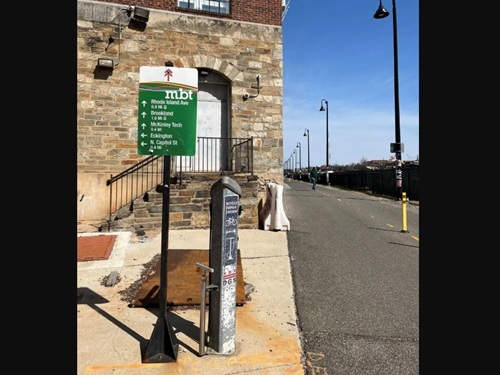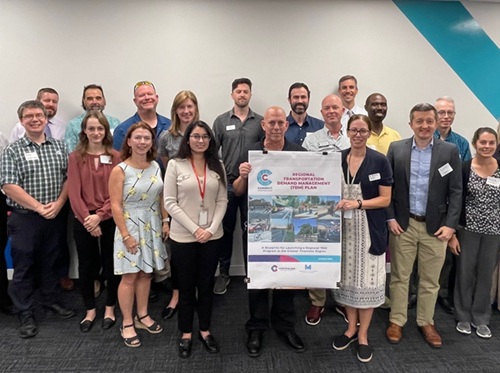A regional planning initiative led by the Centralina Regional Council in partnership with the North Carolina Department of Transportation’s Integrated Mobility Division recently earned national recognition for its work to improve transportation access and reduce congestion in the greater Charlotte region.
[Above photo by the Centralina Regional Council]
The CONNECT Centralina project received a 2025 Impact Award from the National Association of Development Organizations for improving quality of life for residents while building long-term infrastructure resilience.
Backed with $285,000 in state funding, along with $115,000 in local contributions, the project produced the Charlotte region’s first Transportation Demand Management or TDM plan; a term referring to programs and strategies that reduce reliance on single-occupancy vehicles by encouraging options like carpooling, transit, walking, and biking.
“The partnership reflects our commitment to helping regions create smarter, more connected communities,” said Brennon Fuqua, director of NCDOT’s Integrated Mobility Division, in a statement. “Supporting local innovation is key to reducing single-occupancy vehicle trips and improving mobility statewide.”
He noted that NCDOT played a “hands-on role” in this regional project, from consultant selection to project oversight as well as providing a regional planner from the Integrated Mobility Division to serve as both project manager and steering committee member for it.
“CONNECT Centralina is a one-of-its-kind program in our region that gives residents the opportunity to take their commutes back for themselves,” said Sarah Niess, senior planner at Centralina Regional Council, who spearheaded this project. “NCDOT’s support, both in providing financial support and technical assistance throughout the process, was critical to the development of our transportation demand management plan.”
 Active Transportation
Active Transportation



